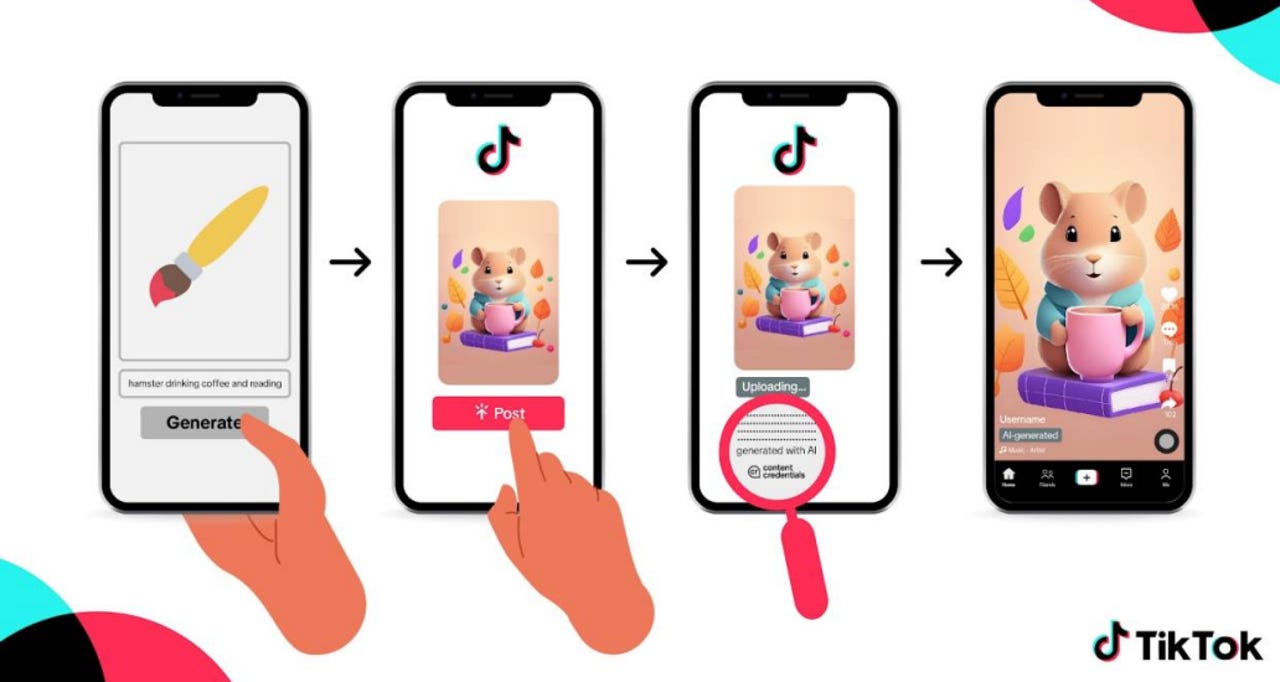
Trying to distinguish between synthetic and authentic content is becoming more difficult as the quality of AI-generated images becomes increasingly realistic. To help you make the distinction while scrolling on TikTok, the short-form video platform has embraced Content Credentials.
On Thursday, TikTok announced it will now automatically label uploaded AI-generated content (AIGC) with Content Credentials attached. When scrolling in TikTok, you will see an “AI-generated label” show up on content that has Content Credentials designating it was AI-generated within its metadata, as seen in the image at the top of this article.
Also: The best AI image generators of 2024: Tested and reviewed
Content Credentials, developed by the Coalition for Content Provenance and Authenticity (C2PA), refers to tamper-evident metadata that serves as a “nutrition label” for a piece of content’s vital ingredients, including the creator’s name, tools used to create the content (such as a camera or software program), edits made, and more.
These credentials can be added manually to a piece of content by the author for free to ensure their content is properly attributed. Many AI applications, such as Adobe Firefly, automatically implement Content Credentials to AIGC. If you upload content created using such a tool, TikTok will automatically label it for users.
This extra safety measure ensures AI-generated content is labeled even if the user uploading the content doesn’t disclose it themselves. This measure will be useful on TikTok when powerful video generators, such as OpenAI’s Sora, become generally available. The safety measure began rolling out to users today and will apply to all users globally in the coming weeks.
“AI-generated content is an incredible creative outlet, but transparency for viewers is critical. By partnering with peers to label content across platforms, we’re making it easy for creators to responsibly explore AI-generated content while continuing to deter the harmful or misleading AIGC that is prohibited on TikTok,” Adam Presser, TikTok’s head of operations and trust and safety, said in a statement.
Also: TikTok launches a Notes app to beat Instagram at photo sharing… using text
In the coming months, TikTok will also attach Credentials to native TikTok content, making it possible for users to identify when AIGC was created on TikTok. To show further commitment to Content Credentials, TikTok has also joined the Adobe-led Content Authenticity Initiative.
The Content Credential features build on practices TikTok already had in place to secure safe app practices, such as banning misleading AI-generated content and labeling AIGC created with TikTok’s AI effects.













